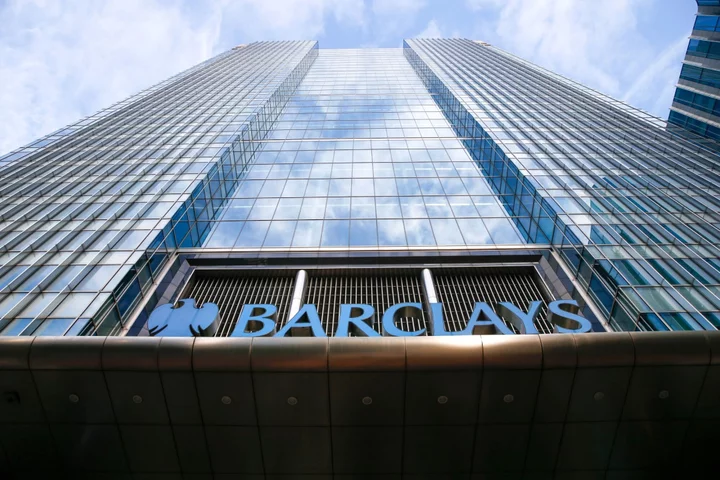Christian Aid, a British nonprofit, announced that it will no longer bank with Barclays Plc due to the bank’s funding of oil and gas projects.
The 78-year-old charity has kept its money with Barclays since 2015. Between 2016 and 2022, Barclays financed some $190 billion in fossil fuel projects, according to an analysis by the Rainforest Action Network. Those included projects for fracking and for drilling in the Arctic.
“Whilst Barclays was able to provide banking services to fragile contexts, their record on fossil fuel finance, and their weak commitment to future improvements in this area meant that we had to seek a more suitable provider,” Martin Birch, Christian Aid’s chief operating officer told Bloomberg Green in an emailed statement.
One of the largest international development charities in Britain, Christian Aid took in £78.4 million ($100.8 million) last year. The nonprofit carries out poverty- and disaster-alleviation projects all over the globe, and is the official development agency of Britain and Ireland’s churches. Christian Aid, which had around £16.5 million ($21.16 million) in a Barclays account, said it was moving its banking to Lloyds Bank Plc, another British bank that last year said it would stop funding new oil and gas projects, though Lloyds still lends to companies working in the fossil fuel industry.
A spokesperson for Barclays says the bank can make the greatest difference by working with clients — including oil and gas companies — as they transition to a low-carbon business model. “Where companies are unwilling to reduce their emissions consistent with internationally accepted pathways, they may find it difficult to access financing, including from Barclays,” the spokesperson said.
Banks are coming under scrutiny for their funding of coal, oil and gas as concerns about climate change grow. Christian Aid’s decision also comes amid rising pressure on cultural and charitable organizations to break ties with banks that support fossil fuels. Protesters have appeared at the annual meetings of fossil fuel lenders that include Barclays, Lloyds and HSBC Holdings Plc. Earlier this year, a celebrity-driven campaign led by the film director Richard Curtis targeted major consumer banks in the UK, pushing them to stop funding fossil fuel projects.
Regular people are also starting to tune in. One survey from 2020 found that 80% of customers of Barclays and HSBC did not know about the banks’ funding of fossil fuels; once informed, around one in 10 said they would likely switch to another bank.
Climate activists hope Christian Aid’s decision is the first of many for nonprofits. “As Barclays continues to fund fossil fuel companies' exploration and development of new fields when the [International Energy Agency], the [United Nations] and [The Intergovernmental Panel on Climate Change] have all warned that no such developments are compatible with remaining below 1.5C in global temperatures, it is imperative that Christians, and others, cease to do business with Barclays,” says Rev Darrell Hannah, chair of Operation Noah, a Christian climate charity.
In the UK, Christian campaigners have been a major voice in recent climate change protest movements. In June, the Church of England pensions board said it would divest from oil and gas entirely after years retaining its investments in the interest of shaping policy as a shareholder.

